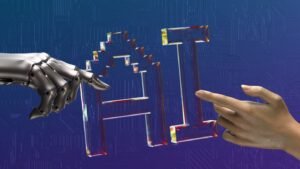Computer Science Algorithms – BBC Bitesize
Computer science algorithms play a crucial role in solving complex problems and enhancing the efficiency of computer systems. By understanding and implementing these algorithms, developers can create efficient software and improve performance. In this article, we delve into the key concepts of computer science algorithms and their applications.
Key Takeaways
- Computer science algorithms are essential for solving complex problems and improving software performance.
- Algorithms help in optimizing search operations, sorting data, and solving mathematical problems.
- Understanding algorithm complexity is crucial for evaluating program efficiency.
- Efficient algorithms are vital for designing reliable and scalable software systems.
- Continuous learning and staying updated with the latest algorithms is essential for computer science professionals.
An algorithm is a step-by-step procedure or a set of rules for solving a specific problem. It is the foundation of computer science and is used extensively in various fields, including artificial intelligence, data analysis, cryptography, and more.
Algorithms help in optimizing search operations, where they efficiently locate and retrieve desired information from a large dataset. They also play a significant role in sorting data, where they arrange elements in a specific order based on certain characteristics.
One interesting algorithm is the Binary Search, which divides a sorted array in half with each iteration, reducing the search space by half in every step. This algorithm ensures efficient search operations and is widely used in many applications.
Another vital application of algorithms is in solving mathematical problems. Algorithms can perform complex mathematical calculations, such as finding prime numbers, calculating square roots, or solving equations. These algorithms help scientists, engineers, and researchers tackle complex mathematical challenges.
Algorithm complexity refers to the efficiency and resources required to run an algorithm. By evaluating complexity, developers can determine the performance impact of their code. Big O notation, a mathematical notation, is commonly used to express the time and space complexity of an algorithm.
Understanding algorithm complexity is crucial for evaluating program efficiency. Efficient algorithms are designed to minimize resource usage and execution time, ensuring optimal performance. Developers aim to optimize algorithms by reducing their time complexity, space complexity, or both.
Table 1: Comparison of Sorting Algorithms
| Algorithm | Time Complexity | Space Complexity |
|---|---|---|
| Bubble Sort | O(n^2) | O(1) |
| Quick Sort | O(n log n) | O(log n) |
| Merge Sort | O(n log n) | O(n) |
Table 1 shows a comparison of sorting algorithms, highlighting their time and space complexities. Bubble Sort, although simple to implement, has a higher time complexity compared to Quick Sort and Merge Sort. Both Quick Sort and Merge Sort have better time complexities, making them more efficient for sorting large datasets.
Table 2: Common Search Algorithms
| Algorithm | Time Complexity | Space Complexity |
|---|---|---|
| Linear Search | O(n) | O(1) |
| Binary Search | O(log n) | O(1) |
Table 2 presents common search algorithms, showcasing their time and space complexities. Linear Search is a simple and straightforward approach for finding an element in a list. Binary Search, on the other hand, is much more efficient, especially for sorted datasets, as it significantly reduces the search space with each iteration.
Continuous learning and staying updated with the latest algorithms is vital for computer science professionals. The field of computer science is dynamic, and new algorithms are constantly being developed and improved.
“The world of algorithms is a fascinating one, where mathematical principles meet computational efficiency.”
By mastering computer science algorithms, professionals can enhance their problem-solving skills, create more efficient software, and contribute to advancements in various domains.

Common Misconceptions
Computer Science Algorithms can be a complex topic, and like any subject, there are often misconceptions surrounding it. Let’s explore some of the common misconceptions people have about computer science algorithms:
Algorithm Efficiency is Solely Determined by Speed
- Efficiency also considers memory usage and scalability
- An algorithm may not always be the fastest option for a particular problem
- Trade-offs between different factors need to be considered for optimal algorithm design
Algorithms are Only for Computer Scientists
- Algorithms have applications in various fields, such as finance, healthcare, and logistics
- Understanding algorithms can help individuals become better problem solvers
- Basic understanding of algorithms can benefit anyone using computers
Complex Algorithms Always Produce Accurate Results
- Complexity does not guarantee correctness
- Accuracy relies on proper implementation and testing
- Simpler algorithms can sometimes be more reliable and accurate
Algorithms are Too Difficult to Learn
- Learning algorithms is a step-by-step process
- Starting with simple algorithms can build a foundation for understanding more complex ones
- There are various online resources and courses available to help learn algorithms
Algorithms are Only About Writing Code
- Understanding algorithms involves problem analysis and designing efficient solutions
- Implementation in code is just one aspect of algorithm development
- Algorithms require logical thinking and problem-solving skills

Overview of Computer Science Algorithms
Computer science algorithms are an integral part of modern technology, allowing computers to solve complex problems efficiently. These algorithms are a set of step-by-step instructions that enable computers to perform various tasks and make decisions. Below, we explore 10 fascinating aspects of computer science algorithms.
1. Most Popular Sorting Algorithms
Sorting algorithms play a significant role in organizing data. Here are the five most popular sorting algorithms and their average time complexities:
| Sorting Algorithm | Time Complexity |
|---|---|
| Bubble Sort | O(n^2) |
| Selection Sort | O(n^2) |
| Insertion Sort | O(n^2) |
| Quick Sort | O(n log n) |
| Merge Sort | O(n log n) |
2. Running Time of Searching Algorithms
Searching algorithms are used to locate specific elements within a dataset. The table below presents the running times of three commonly used searching algorithms:
| Searching Algorithm | Time Complexity |
|---|---|
| Linear Search | O(n) |
| Binary Search | O(log n) |
| Hash Table Lookup | O(1) |
3. Top Graph Algorithms
Graph algorithms are vital for analyzing social networks, transportation systems, and more. Here are three top graph algorithms and their applications:
| Graph Algorithm | Application |
|---|---|
| Breadth-First Search (BFS) | Shortest path finding |
| Depth-First Search (DFS) | Graph traversal |
| Dijkstra’s Algorithm | Optimal path finding |
4. Big O Notation Complexity Scale
The Big O notation expresses algorithmic complexity in terms of the input size. It helps assess an algorithm’s efficiency. The table below depicts the Big O notation complexities and their corresponding growth rates:
| Complexity | Growth Rate |
|---|---|
| O(1) | Constant |
| O(log n) | Logarithmic |
| O(n) | Linear |
| O(n log n) | Linearithmic |
| O(n^2) | Quadratic |
| O(2^n) | Exponential |
5. Cryptographic Hash Functions
Cryptographic hash functions are used to ensure data integrity and security. Here are three widely adopted hash functions:
| Hash Function | Example Use Case |
|---|---|
| MD5 | Checksum verification |
| SHA-256 | Blockchain technology |
| bcrypt | Password hashing |
6. Famous Divide and Conquer Algorithms
Divide and conquer algorithms break down problems into smaller manageable subproblems. Here are three famous examples:
| Algorithm | Application |
|---|---|
| Merge Sort | Sorting arrays |
| Quick Sort | Sorting arrays |
| Strassen’s Matrix Multiplication | Multiplying matrices |
7. Dynamic Programming Techniques
Dynamic programming techniques efficiently solve problems by breaking them into smaller overlapping subproblems. The table below showcases three notable dynamic programming algorithms:
| Algorithm | Application |
|---|---|
| Fibonacci Sequence | Calculating sequence values |
| Knapsack Problem | Optimal resource allocation |
| Longest Common Subsequence | Comparing sequences |
8. Machine Learning Classification Algorithms
Classification algorithms enable machines to categorize data based on specific features. Here are three widely used machine learning classification algorithms:
| Algorithm | Application |
|---|---|
| Support Vector Machines (SVM) | Image recognition |
| Random Forests | Medical diagnosis |
| Naive Bayes | Email spam filtering |
9. Notable String Searching Algorithms
String searching algorithms efficiently locate patterns within text data. The table below presents three notable string searching algorithms:
| Algorithm | Application |
|---|---|
| KMP Algorithm | Find pattern occurrences |
| Rabin-Karp Algorithm | String matching |
| Boyer-Moore Algorithm | Find pattern occurrences |
10. Significant Data Compression Algorithms
Data compression algorithms reduce the size of data for efficient storage and transmission. Below are three significant data compression algorithms:
| Algorithm | Application |
|---|---|
| Huffman Coding | File compression |
| Lempel-Ziv-Welch (LZW) | Lossless data compression |
| Deflate | Zip file compression |
Computer science algorithms are foundational in the development of technology-driven solutions. Through various sorting, searching, graph, and optimization algorithms, computers are empowered to solve problems and process vast amounts of data efficiently. Understanding these algorithms allows developers to create more robust and performant applications, contributing to the advancement of computer science as a whole.
Frequently Asked Questions
Computer Science Algorithms – BBC Bitesize
- What is computer science?
- Computer science is the study of computers and computing systems, including the theoretical and practical aspects of their design, operation, and applications.
- What are algorithms?
- Algorithms are step-by-step procedures or instructions for solving problems or performing calculations. In computer science, algorithms often refer to the specific set of rules or instructions used in programming to solve a particular problem.
- Why are algorithms important in computer science?
- Algorithms are fundamental in computer science because they provide the foundation for developing efficient and reliable software. They enable computers to perform specific tasks and solve complex problems efficiently.
- What are some common types of algorithms?
- Some common types of algorithms include sorting algorithms (e.g., bubble sort, merge sort), searching algorithms (e.g., linear search, binary search), graph algorithms (e.g., depth-first search, Dijkstra’s algorithm), and optimization algorithms (e.g., genetic algorithms, simulated annealing).
- How are algorithms analyzed and measured in computer science?
- Algorithms are analyzed and measured based on their time complexity and space complexity. Time complexity refers to the amount of time taken by an algorithm to solve a problem as a function of the input size. Space complexity refers to the amount of memory or storage space required by an algorithm to solve a problem as a function of the input size.
- What is the difference between an algorithm and a program?
- An algorithm is a step-by-step procedure or set of rules used to solve a problem, while a program is a specific implementation of an algorithm in a programming language. In other words, a program is the code that represents an algorithm and can be executed by a computer.
- Are all algorithms created equal?
- No, not all algorithms are created equal. Algorithms can vary in terms of their efficiency, readability, maintainability, and correctness. Some algorithms may be more suitable for specific problem domains or input sizes than others.
- How can I improve my understanding of algorithms in computer science?
- To improve your understanding of algorithms, you can study relevant textbooks and online resources, participate in coding exercises and challenges, and practice implementing algorithms in a programming language. Additionally, collaborating with fellow computer science enthusiasts and seeking guidance from experienced professionals can help deepen your knowledge.
- Can algorithms be patented?
- In some cases, algorithms can be patented if they meet the requirements for patentability, which include being novel, non-obvious, and useful. However, the legalities surrounding software patents and algorithms vary between jurisdictions, so it is recommended to consult with a legal professional knowledgeable in intellectual property laws to determine the patentability of a specific algorithm.
- What is algorithmic thinking?
- Algorithmic thinking is an approach to problem-solving that involves breaking down a problem into smaller manageable steps and designing algorithms to solve each step. It focuses on developing logical and structured thinking to devise efficient and effective solutions.




